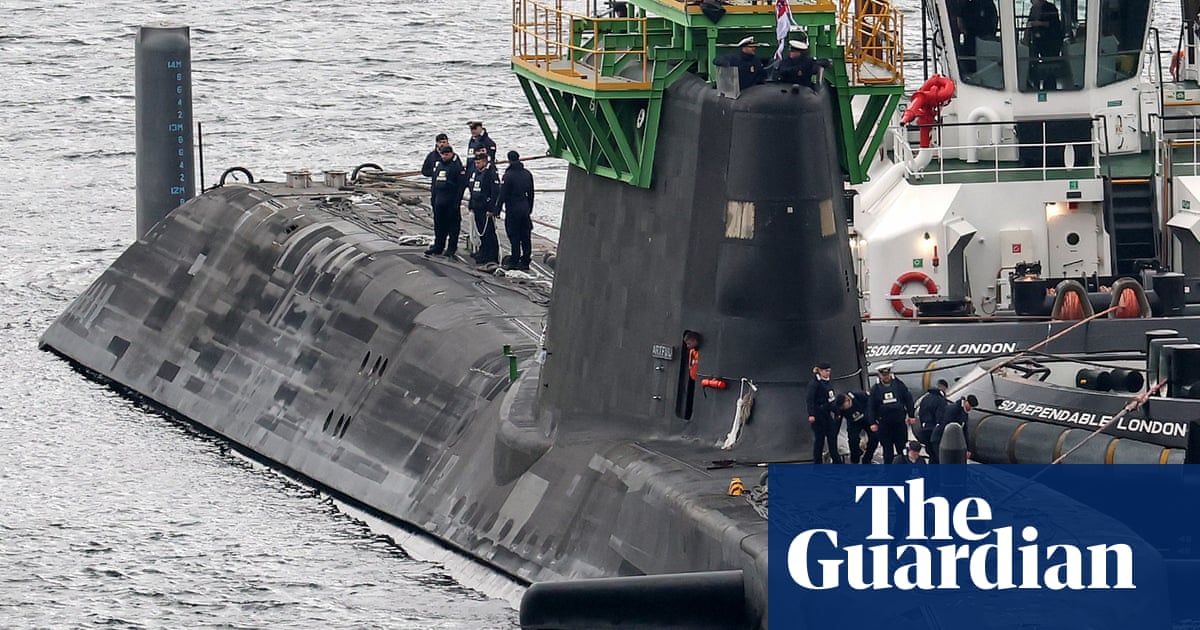The strategic defence review is premised on an increasing threat in Europe from Russian territorial expansion (Keir Starmer vows to make Britain ‘battle-ready’ as he unveils defence spending plans, 2 June). The lessons of Ukraine underline the reality of that threat. But there are other threats to the UK that require engagement across the world and that will not be solved by more drones and more bullets.
Battles for territory and for political power beyond Ukraine result in death and despair for millions. Climate change, deepening inequality, poverty, famine and the displacement of populations generate humanitarian agendas that a country such as ours should respond to. They also constitute threats to us. We should not dispense with foreign aid to bolster a narrow perception of what we need to defend against. But what about cost?
As Dan Sabbagh asks (Spending constrains Labour’s defence review – but no harm in gradualism, 2 June), even if we accept the need to strengthen the readiness of our conventional forces, why do we need to spend more on nuclear weapons?
The existing nuclear deterrent is dreadful in and of itself. Even if we are uncertain about the US’s resolve, the UK and France could unleash mass destruction with what they have now. Surely we cannot see a scenario when we would need to, or choose to, deploy nuclear weapons on the battlefield?
We should redirect the funding for more nuclear weapons in the defence review to overseas aid. It’s not enough, but it does signal that we are not being diverted in our commitment to those in the most dire need across the world by the agenda of Vladimir Putin and his coterie in Moscow.Neil SmallLeeds
Traditionally, we have seen our armed forces as being necessary to protect Britain’s territorial integrity and safeguard our way of life and independence. As Dan Sabbagh points out, our territorial integrity is not under threat. As for our way of life and independence, there is no threat to this from Vladimir Putin: he does not appear to have any interest in the way we conduct our internal affairs, and even if he did, there is not much leverage he could apply. The same cannot be said for the American administration, which can exercise enormous leverage over our government and has distinct ideas about how it would like to influence our internal affairs, made painfully clear by JD Vance in hisMunich speechearlier this year.
Part of this leverage resides in the nature of the dependence of British armed forces on American equipment and support. Under the defence review, this degree of dependence will remain – we will be renewing our nuclear deterrent (missiles provided by the US) and probably buying more equipment from the US. Should we not be looking at decoupling ourselves from the US rather than exposing ourselves to pressure from a potentially malevolent government?Richard HendersonBristol
One must presume that our “battle-ready” prime minister did not read your exemplary interview with Neta Crawford last week (How the US became the biggest military emitter and stopped everyone finding out, 30 May), outlining her analysis of the true costs to the biosphere of an escalation in military spending. Or does not care.
The economics aside, the political choices before Keir Starmer and all global leaders in this Anthropocene twilight of “ecological collapse” (‘Half the tree of life’: ecologists’ horror as nature reserves are emptied of insects, 3 June) are exquisitely stark. Either they devote their full energies to the climate emergency and so genuinely lead in attempting to heal an international system’s self-destructive path to planetary annihilation. Or they reprise the last cold-war, nuclear-tipped, military confrontation of the 1980s and so, this time, seal it. Which is it to be?Dr Mark LeveneNew Radnor, Powys
The prime minister proposes to increase conventional defence spending and bring back a form of national service to “make Britain safer”. Butdocuments in the House of Commons librarystate that we will be spending £118bn between 2023 and 2033 on our nuclear deterrent. If nuclear weapons aren’t keeping us safe, what is the point of them? Why not spend this huge sum on social care, housing and other similar projects that would benefit the whole community. Most people would then be happy to let the prime minister have his soldiers, while life improves for everyone else.Peter LoschiOldham, Greater Manchester
Zoe Williams’ description of sexual violence in war was a hard read, but a timely reminder, given the bullish talk flowing from the strategic defence review, that war is always an atrocity in one form or another (The story of war is one of kidnapping, slavery and rape. And what we talk about is strategy and territory, 2 June). The second world war ended with the atrocities of atomic bombs dropped on Hiroshima and Nagasaki. I support strengthening our defences to keep Britain safe from attack, but if nuclear weapons are part of that, let us remember that they are a deterrent, not an opportunity.Anne ConstantineGreat Gransden, Cambridgeshire
